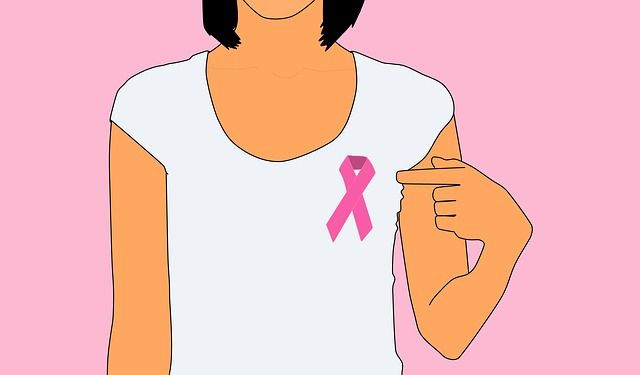Breast Cancer Risks And Weight: Inflamed Breast Fat Linked To Cancer In Women With Healthy BMI

Obesity's role in cancer risk and development has been a topic of particular research interest, but a new study has found that even women with a healthy weight, as measured by their BMI, may be at risk for developing breast cancer, which means far more women could be at risk than previously known. Better prevention may lie in developing a non-invasive test to identify women who have inflamed breast tissue fat rather than just looking at a woman's weight.
The study, now published online in Cancer Prevention Research, found that women with a healthy BMI may be at risk of developing breast cancer because of enlarged fat cells in their breast tissue that trigger an inflammatory process. For example, according to the study, 39 percent of women with normal BMIs who were undergoing mastectomies, either to prevent cancer or as a treatment for current cancer, were found to have inflammation of their breast fat tissue — a trait normally associated with obesity. This finding suggests that doctors shouldn't underestimate a woman’s breast cancer risk simply because she's a healthy weight, according to a report on Medical Xpress.
"It is similar to prediabetes, which is traditionally considered to be associated with overweight or obesity," explained lead study author, Dr. Neil Iyengar, a medical oncologist in the Breast Medicine Service at Memorial Sloan Kettering Cancer Center and an assistant professor of medicine at Weill Cornell Medicine, in the Medical Xpress article. "We call it metabo-inflammation, which means there's inflammation in the fat that has metabolic consequences even in these normal weight women."
According to Iyengar, this research “increases our awareness of a potentially vulnerable population. An alarming number of people may be at risk."
For the study, the team looked at breast tissue from 72 women with healthy BMIs who were undergoing mastectomies. Looking at their breast tissue, they noted that 39 percent of the women had signs of inflammation in their breast fat tissue. This inflammation is caused when enlarged or sick fat cells called adipocytes are destroyed by white blood cells called macrophages. This immune response to the dying fat cells causes an inflammatory reaction, which contributes to cancer risk. Inflammation caused by breast cells is is associated with elevated levels of the enzyme aromatase, which can help encourage the growth of hormone-sensitive breast tumors.
However, it is still not clear why healthy weight women develop this fat inflammation, a trait normally associated with overweight women.
"We don't currently know the precise reasons," Iyengar added, "but it will be important to examine diet and activity levels to see if any patterns emerge and to ultimately develop effective cancer prevention and treatment strategies."
The team hope that better understanding the cause of this inflammation and its consequences may lead to better breast cancer detection and prevention. For example, they note that one day, a non-invasive test that recognizes this fat inflammation in women could be used to identify patients in greatest need of intervention.
However, obesity does play a role in cancer: Recently, researchers at the University of North Carolina Lineberger Comprehensive Cancer Center noted a critical link between obesity and cancer risk after finding that aggressive breast cancer cells grew faster in obese tissue. This finding may explain why obesity and cancer are so closely linked, and also suggested that weight loss could be an effective way to lower individual cancer risk.
Source: Iyengar NM, Brown KA, Zhou XI, et al. Metabolic Obesity, Adipose Inflammation and Elevated Breast Aromatase in Women with Normal Body Mass Index. Cancer Prevention Research . 2017
See Also:
Obesity May Increase Risk Of Breast Cancer In African-Americans, Hispanics



























